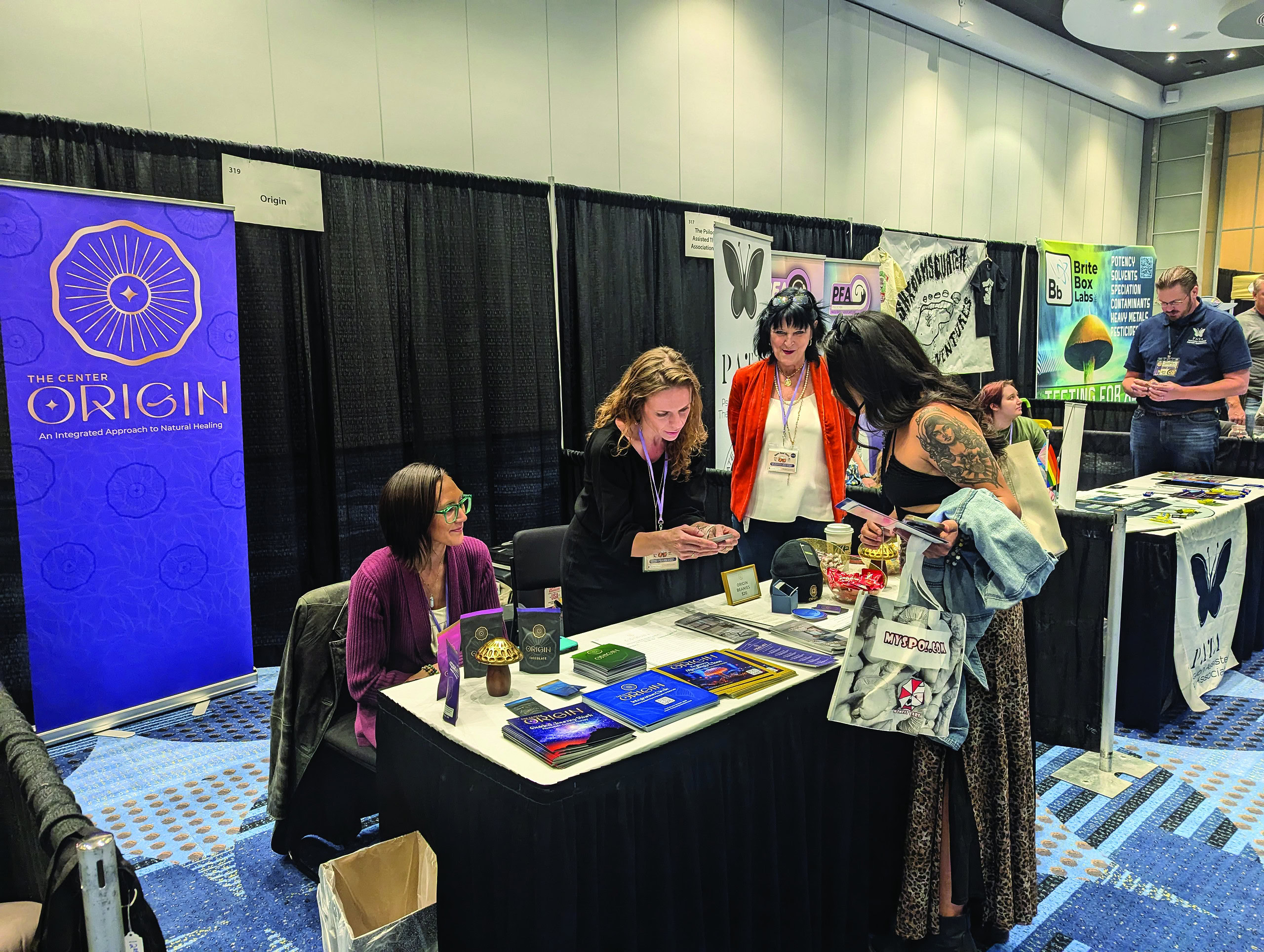
With Colorado’s natural medicine program set to go live in just a few months, activity in the psychedelic community is ramping up. PsyCon was held Oct. 10-12 in Denver, bringing together roughly 1,000 people from across the nascent industry.
I had the pleasure of speaking at the conference, where much of the conversation focused on the new business opportunities emerging in the new year. As a reminder, come 2025, psilocybin-assisted therapy will be legal under a new regulated model. The state will license facilitators, clinics, mushroom cultivators, product manufacturers, labs and training programs.
The PsyCon trade show floor was flush with new businesses gearing up to apply for these licenses, many of which are currently operating in a precarious state of legality. While Colorado’s Prop 122 decriminalized psilocybin for personal use in 2022, it did not create a retail or commercial pathway.
Since then, many of the underground cultivators and practitioners have had one foot out of the underground, waiting on this new legal avenue. Mushroom cultivators could be found among the 50 or so vendors on the tradeshow floor, handing out free samples while selling grow kits, spores and lessons in cultivation.
If mushrooms are the gold, Noah Novello of Friday Ventures is selling pickaxes. His company offers inexpensive mushroom testing services for home growers to know how much of the psychoactive ingredients are present in their fruit.
Novello had his suitcase-size laboratory set up and showed me just how variable different strains can be. This may point to a more nuanced future for psilocybin, just as cannabis strains were refined in the early years of legalization.
Eight training programs have already been awarded licenses. This includes two in Boulder County: Naropa Center for Psychedelic Studies in Boulder and Integrative Psychiatry Institute (IPI) in Niwot.
Facilitators will need to complete training from a licensed training program to work legally in the regulated space. Programs are already bustling with activity.
“We expect to have 30 students for Colorado training starting in March,” said Travis Kern, lead educator at Portland, Oregon-based Acadia.
Beyond the fervor, there was a healthy balance of caution. The state of Oregon rolled out a similar program in 2023. While thousands of psilocybin journeys have been administered in the program, business has proven difficult to sustain, with the cost of the license itself being a primary culprit.
“Over the past two years, I’ve paid $23,000 in license fees to the state while our revenues [from the program] have only been $25,000,” said Dan Huson, CEO of Rose City Labs, the only licensed psilocybin testing laboratory left in Oregon. The company has kept itself afloat with revenue from other sources, such as federal water-testing contracts.
Colorado’s program will be the second iteration of a state program, and the country is watching. On Nov. 5, Massachusetts voters will decide if their state will adopt a similar program, built upon the lessons yet to be uncovered in Colorado.
Niko Skievaski (niko@altheapbc.com) is a Boulder resident and co-founder of Althea PBC, a software company supporting the regulated rollout of psychedelics in Colorado, Oregon, and beyond. He served on Denver’s Natural Medicine Work Group and has a background in healthcare technology.
